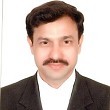 Baldev Singh
01 March 2011 at 07:50
Baldev Singh
01 March 2011 at 07:50
Public prosecutor being already in the service of the Union of the cannot appear in higher judiciary examination. Article 233 of the Constitution of India deals with the appointment of District Judge (Higher Judiciary) . Article 233 having two parts:
233(1) which deals with appointment of district judges’ form service and service means judicial service. 233(2) deals with recruitment of District judges from the eligible advocates. Article 233(2) of the Constitution reads as under:
“A person not already in the service of the Union or of the State shall only be eligible to be appointed a District Judge if he has been for not less than seven years an advocate or to pleader and recommended by high court for appointment”
As per Article 233(2) of the Constitution of India, there are three essential conditions for appointment to the post of District Judges are:
a) A person who is not in any service whether under Union or States;
b) A practising advocate/pleader for at least 7 years; and
c) Last requirement is recommendation of the High Court.
If any of the essential component contemplated by the Constitutional provision, wanting, he is ineligible.
Therefore public prosecutors/Assistant Public Prosecutors or any person who is already in service of the Union or the States shall not be eligible for the post of District Judge. Article 233 (2) with all its vitality, versatile and rigour prohibits a member of service to seek appointment to the office of District/Additional District Judge.
1. .Keshav Kaushik versus State of Haryana CWP No. 9157 of 2008 Decided on 18.05.2010 Punjab and Haryana High Court D. B. Reported as 2010 (3) SCT 245
2. K.R. Biju Babu V/s High Court Kerela 2008 Labour and industrial cases 1784 ( Kerela)
3. Mallaraddi H. Itagi V/s High Court of Karnataka 2002 Lab. I C. 2074 ( Knt.)
can a public prosecutor appear in higher judiciary exams
Public prosecutor being already in the service of the Union of the cannot appear in higher judiciary examination. Article 233 of the Constitution of India deals with the appointment of District Judge (Higher Judiciary) . Article 233 having two parts:
233(1) which deals with appointment of district judges’ form service and service means judicial service. 233(2) deals with recruitment of District judges from the eligible advocates. Article 233(2) of the Constitution reads as under:
“A person not already in the service of the Union or of the State shall only be eligible to be appointed a District Judge if he has been for not less than seven years an advocate or to pleader and recommended by high court for appointment”
As per Article 233(2) of the Constitution of India, there are three essential conditions for appointment to the post of District Judges are:
a) A person who is not in any service whether under Union or States;
b) A practising advocate/pleader for at least 7 years; and
c) Last requirement is recommendation of the High Court.
If any of the essential component contemplated by the Constitutional provision, wanting, he is ineligible.
Therefore public prosecutors/Assistant Public Prosecutors or any person who is already in service of the Union or the States shall not be eligible for the post of District Judge. Article 233 (2) with all its vitality, versatile and rigour prohibits a member of service to seek appointment to the office of District/Additional District Judge.
1. .Keshav Kaushik versus State of Haryana CWP No. 9157 of 2008 Decided on 18.05.2010 Punjab and Haryana High Court D. B. Reported as 2010 (3) SCT 245
2. K.R. Biju Babu V/s High Court Kerela 2008 Labour and industrial cases 1784 ( Kerela)
3. Mallaraddi H. Itagi V/s High Court of Karnataka 2002 Lab. I C. 2074 ( Knt.)